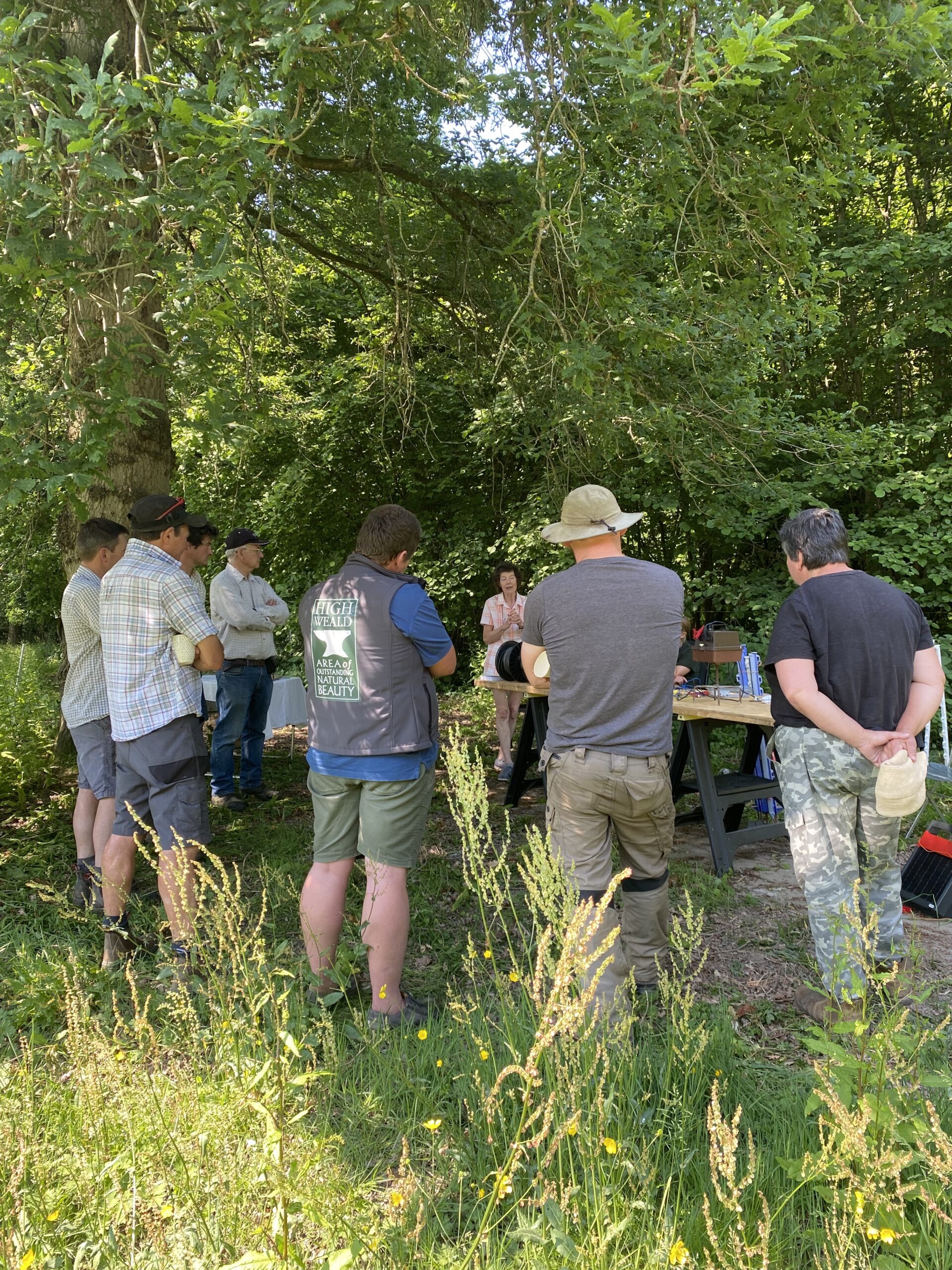Pasture and Profit in Protected Landscapes is funded by Farming in Protected Landscapes Fund (FiPL) offering free, innovative mentoring and an events programme across several National Landscapes for farmers interested in increasing farm profits and biodiversity through the management of grazing animals.
We recently caught up with Deborah Barker, Pasture and Profit Programme Manager for the High Weald, Surrey Hills and Kent Downs National Landscapes, to chat through some of the key learnings over the last 18 months. We also discuss plans for the future with additional funding recently secured from FiPL to continue the project for 2024/5.
Over the first phase of the project Deborah and her colleague Sarah Gillet have built a community of nearly 150 registered farmers, across the three National Landscapes, including 18 mentors and 42 mentees. Keen to understand more about the relationship between mentor and mentee relationship – I ask how they match them?
The ultimate goal is to find the best match to support each mentee’s individual needs and style of learning, she replied.
Some mentees prefer to learn through hands-on experience and others like planning and mapping she says. Other important considerations include, personality, ambition, capacity for risk and whether the mentee is tech-orientated or not.
With 18 mentors to choose from, Deborah has plenty of options to ensure a good fit and feedback from mentee evaluations has been positive she said. In a recent online survey of mentees 100% responded that they felt more confident in making decisions about their farm as a consequence of being on the programme.
Events
The programme has delivered 32 on-farm events and 20 webinars which have helped farmers learn about different grazing techniques, livestock genetics, soil health and how to reduce their costs (and improve their profitability) by reducing the workload associated with indoor housing.
Community building and peer to peer learning
As well as building knowledge – another key aim of the programme has been to build community amongst like minded farmers, many of whom can feel isolated where they are despite living in one of the most populated areas of the UK said Deborah.
“Livestock farming can often be quite a solitary existence and with increasing financial pressure and extreme weather, it’s not surprising that many farmers are struggling,” she said.
As well as offering guidance and advice on management of grazing, mentors provide a sounding board for mentees, giving them the confidence to learn through their own mistakes.
“Early on mentees want to connect with their mentors but as the programme has developed the communication has become more peer to peer,” she added.
It’s this peer to peer learning that is key to helping farmers transition to more regenerative practices in a supportive, non-competitive environment.
As an example, Deborah described a mentee from the Surrey Hills interested in learning about mob grazing sheep, who contacted her daughter Gala Bailey-Barker (who is also part of the programme) to spend a morning doing chores with her at Plaw Hatch Farm in East Sussex.
WhatsApp Group
Helping connect members is the P&pP PFL Grazing WhatsApp group, which now has 72 members and has become a vital tool for farmers to stay in touch across the three National Landscapes.
“It’s become a thriving community for our mentees and mentors to support each other and share updates, learnings and stories from their own farms,” said Deborah.
Feedback from group members
To find out more I caught up with a few of the group members on the phone.
Chris Mighall, a mentee based at Sandhall Farm in the Surrey Hills – explained how joining the P&pPP PFL community has helped take his grazing management to the next level. Mob grazing his cattle has been relatively easy but getting sheep to behave themselves is another matter, he said.
The programme has also helped him improve his water infrastructure – something you don’t always think about when you’re getting started, he said.
He is also a regular user of the Pasture for Life (PFL) forum – a rich source of information, which new mentees have access to through the free 12 month PFL membership (worth £120) that comes with being part of the programme.
Another past mentee Paul Cooper from Lidham Farm in Guestling, East Sussex highlighted the farm visits – which he found very helpful, picking up lots of tips over cups of tea with other mentees. He hopes to share some of his own learnings later this year.
Lastly, I spoke to Dr Joanna Gore, another mentee based at Green Oak Farm in Brightling, who also helped carry out the evaluation of the first phase of the project. As a new entrant farmer, the programme has allowed her to meet lots of other like minded farmers and feel less isolated. She said the biggest take away from the evaluations has been the community building.
Plans for the future
Pasture for Life has recently received confirmation of funding for Pasture and Profit in Protected Landscapes 2024/5 starting in late April.
A mentoring and events programme will be coupled with a bespoke skills development package to support farmers and land managers in the Surrey, High Weald and Kent National Landscapes wanting to pursue high nature value farming practices. For more information https://www.pastureforlife.org/webinars/pastureandprofit/pastureandprofit-southeast/ or email [email protected]
Join the programme
The programme is run by Pasture for Life. Email [email protected] to be sent a simple joining form. You must be based in or near the High Weald, Surrey Hills or Kent Downs National Landscape to be eligible.
“By joining the programme, you are not expected to become Pasture for Life certified, or transition to 100% pasture fed. The programme aims to meet individuals’ needs and support their chosen system,” said Deborah.








